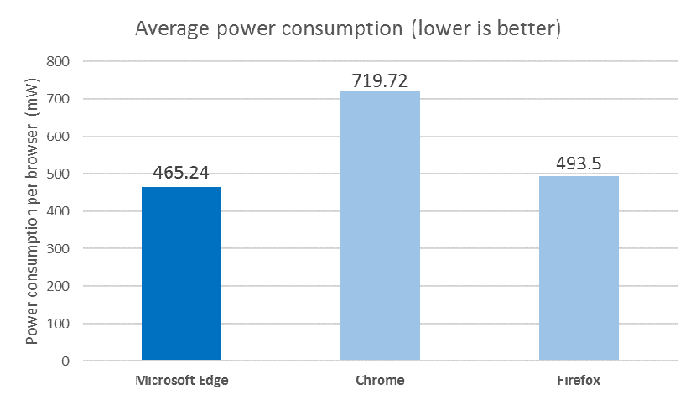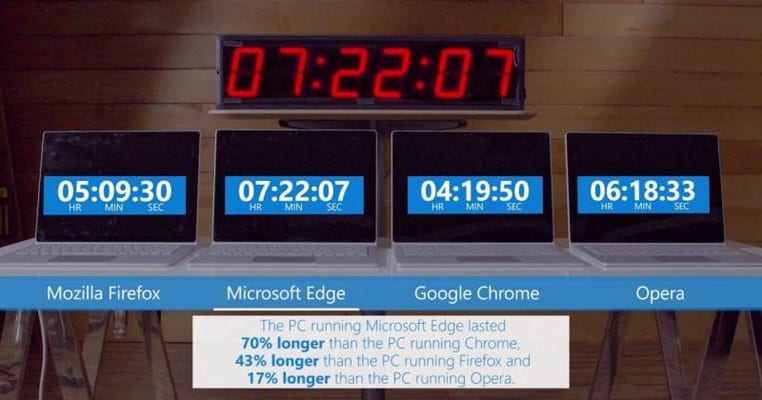While web browsers in their time competed for performance and quality, now we find that its developers pride themselves on the ability to consume the least battery possible. This is also due to the little innovation in battery technology and how more and more explorers consume more resources.
It is now Microsoft that shows how its Edge web browser is the most efficient in energy management, to even, at the same time, indicate that Google Chrome is the one that does the worst job in this regard. A feature of great importance for users who use their laptop and have to look closely at the efficiency of those programs that they have installed on their computer.
Microsoft performs various tests to prove this better edge efficiency, but among all these tests, the most relevant is the one when Microsoft uses four identical Surface Books to reproduce the same HD video in four different web browsers: Firefox, Chrome, Opera and Edge. The test is done to determine which of these explorers will be responsible for consuming the laptop's power first.

The first is Chrome that uses 4 hours and 20 minutes, the second is Firefox with 5 hours and 9 minutes, and Opera, surprisingly arrives at 6 hours and 18 minutes. Microsoft comes out a clear winner with Edge at 7 hours and 22 minutes of video streaming.

You have to count on that Edge has an extra feature that achieves do not consume so many resources and this is that it does not have as many add-ons as they do have Firefox or Chrome. Some factors to count when using one or the other browser, but come on, if you are looking for a simple one without add-ons to explore the web, Edge seems like the winning horse. The only thing that happens is that Chrome is still the most used.